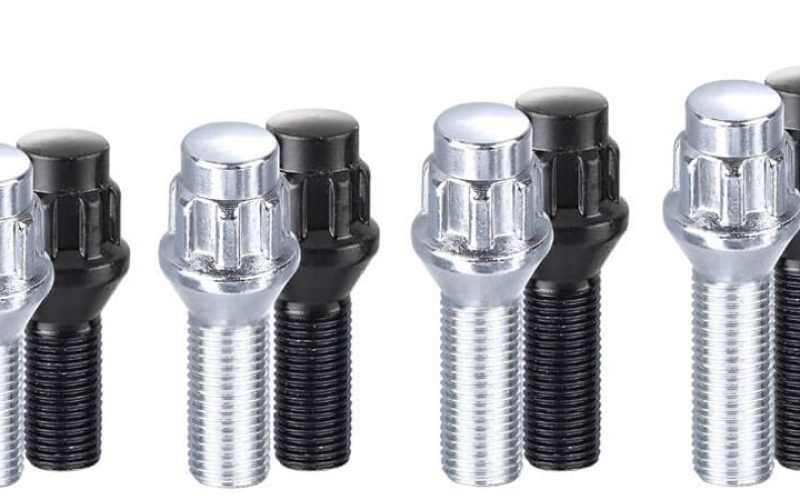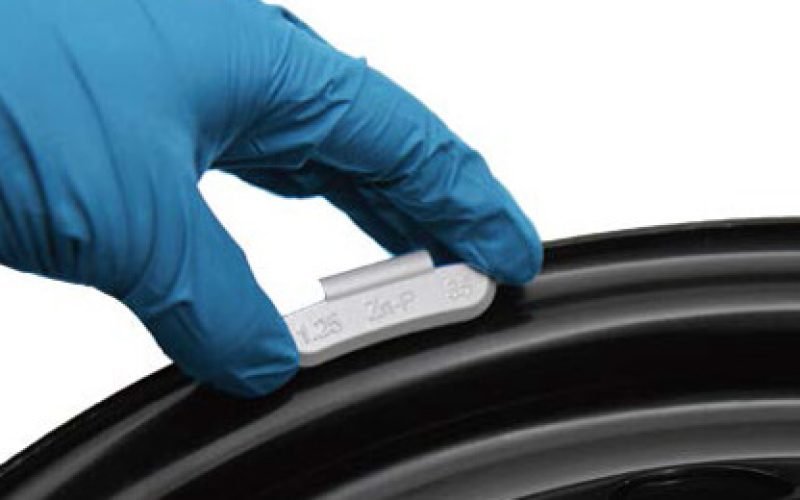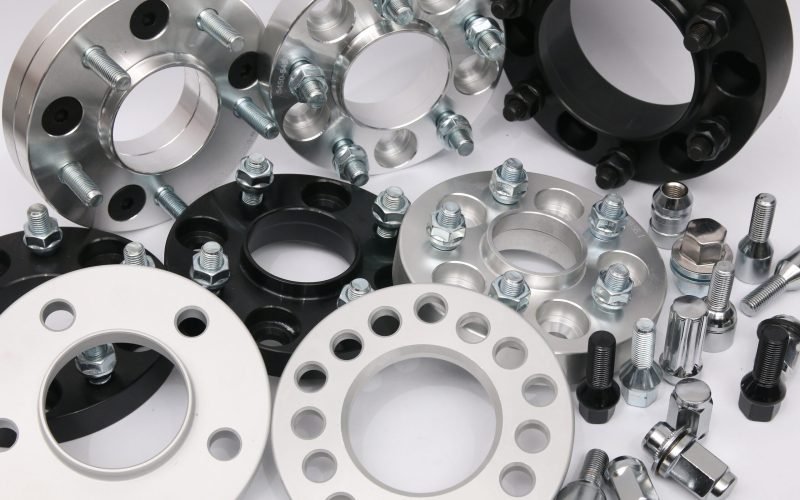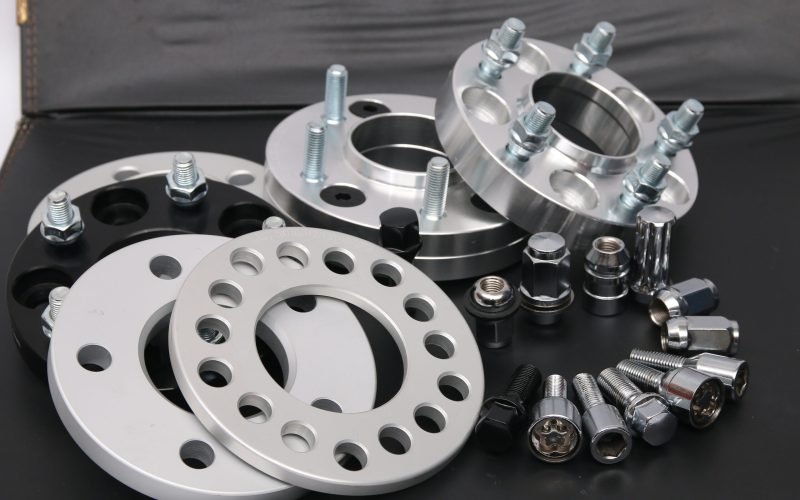

admin1
June 20, 2025
How Wheel Tire Weight Affects Fuel Efficiency and Ride Quality
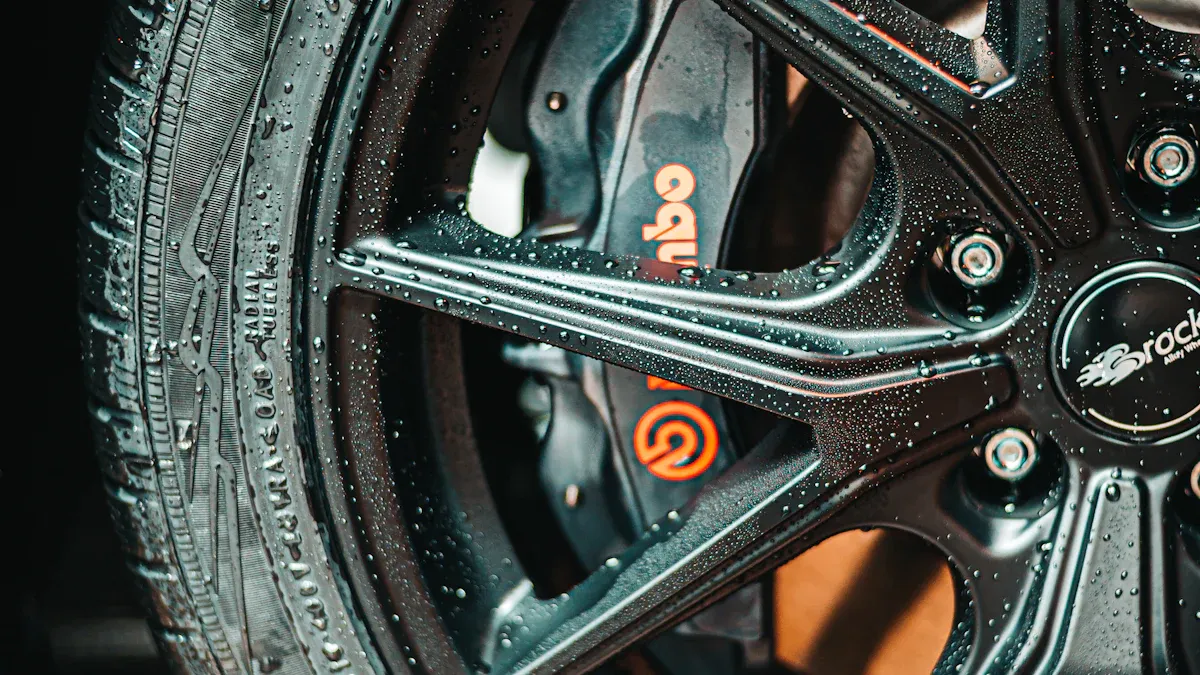
Wheel tire weight can greatly impact your driving experience. Heavier wheels and tires make your car work harder, which reduces fuel efficiency. Studies show that lighter wheels can boost miles per gallon by up to 8%. When you use lighter wheel tire weight, you feel smoother rides and easier acceleration. Even a small drop in weight, like switching from 21 lbs to 17 lbs wheels, makes driving crisper and more comfortable. Choosing the right setup saves gas and helps your car respond better on the road.
The Science Behind Wheel Tire Weight

Understanding Unsprung Weight
When you look at your car, you see many parts working together. Some parts, like the body and seats, sit on top of the suspension. These are called sprung weight. Other parts, such as the wheels, tires, and brakes, sit below the suspension. This is known as unsprung weight. Wheel tire weight is a big part of unsprung weight.
Unsprung weight matters because it connects your car to the road. If you use heavier wheels and tires, your suspension has to work harder. Scientific studies show that more unsprung weight makes your ride less smooth. Your car feels more bumps and shakes. When you choose lightweight wheels, your suspension responds faster to changes in the road. This helps your tires keep better contact with the ground, which means you get more grip and control. Simulation models and real-world tests confirm that higher unsprung weight leads to more tire deflection and less comfort for you and your passengers.
Tip: Reducing unsprung weight by picking lightweight wheels can make your daily drive much smoother and safer.
How Wheel Tire Weight Impacts Vehicle Dynamics
Wheel weight affects how your car moves, stops, and handles. Heavier wheels need more engine power to spin. This slows down your acceleration and makes your engine work harder, which lowers your fuel economy. Research shows that even a small increase in wheel tire weight can make your car use more gas and take longer to stop. For example, a test with a BMW 3 Series found that switching to heavier wheels dropped fuel economy from 22.8 mpg to 21.1 mpg.
Lightweight wheels help your car speed up and slow down faster. They also put less stress on your suspension. Technical analysis shows that a small increase in wheel weight can double the negative effect on your car’s performance. You will notice better handling, shorter braking distances, and a more comfortable ride when you use lighter wheels and tires. This is true for both everyday driving and high-performance situations.
Wheel Tire Weight and Fuel Efficiency
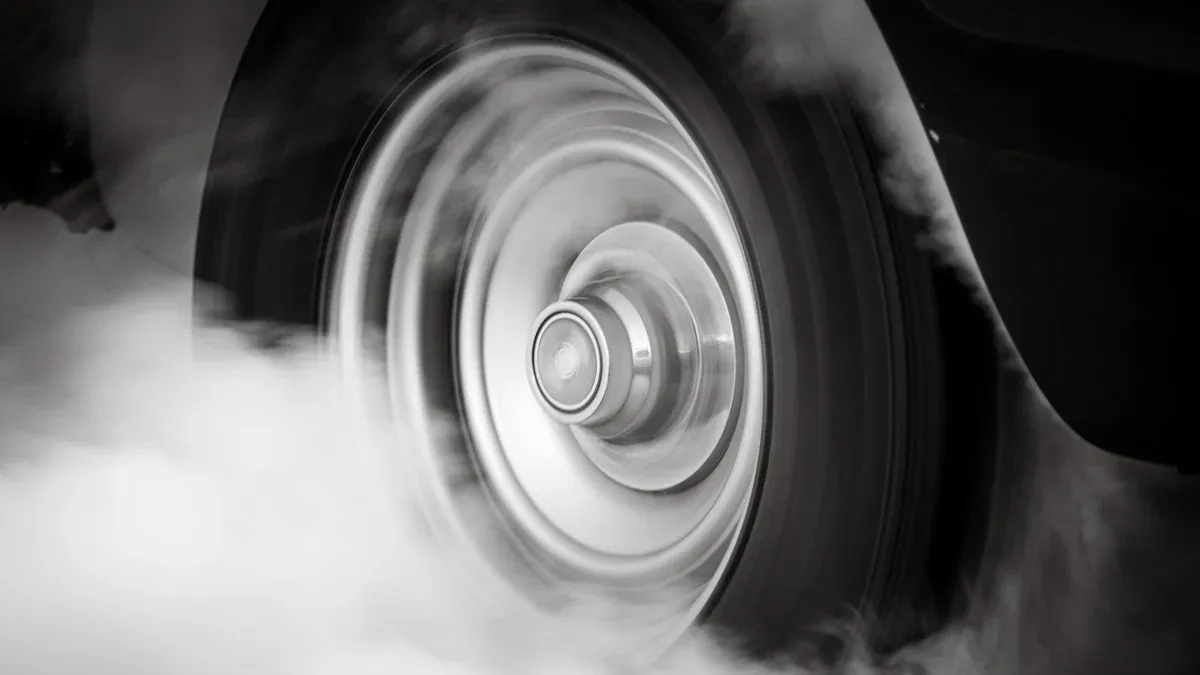
Increased Weight Means Higher Fuel Consumption
When you add more weight to your wheels and tires, your car needs more energy to move. Heavier wheels make your engine work harder every time you speed up, slow down, or drive uphill. This extra effort leads to higher fuel consumption. Research shows that tire mass directly affects how much gas your car uses. The National Academies Report on Tires and Fuel Economy explains that as tires get heavier, they create more rolling resistance. This means your car loses more energy as heat, so you need to burn more fuel to keep moving.
You can see this effect in real-world tests. For example, heavy goods vehicles with lightweight tires use up to 8% less fuel than those with standard, heavier tires. This difference is not just a small number. Over time, it adds up to big savings at the gas pump.
Note: Even a small increase in wheel weight can cause your car to use more fuel on every trip.
Rolling Resistance and Engine Workload
Rolling resistance is the force that slows your car down as your tires roll on the road. When your tires are heavier, they deform more and create more friction. Your engine must work harder to overcome this resistance. The National Academies Report highlights that tire mass is a key factor in rolling resistance. If you keep your tires properly inflated, you can help reduce this resistance, but the weight of the tire still plays a big role.
A study on tractors found that adding weight to the wheels increases rolling resistance and fuel use. While extra weight can help with traction, it also means your engine burns more fuel. You can think of it like riding a bike with a heavy backpack. You have to pedal harder, and you get tired faster. Your car feels the same way when it carries heavier wheels and tires.
Here is a simple table to show how rolling resistance affects fuel economy:
| Tire Weight | Rolling Resistance | Engine Workload | Fuel Economy Impact |
|---|---|---|---|
| Lightweight Tire | Lower | Easier | Better |
| Heavy Tire | Higher | Harder | Worse |
Real-World Examples of Fuel Savings
You can find many real-world examples that show how lighter wheels and tires improve fuel efficiency. In one field study, trucks that switched to lightweight wheels saved between 900 and 1500 liters of diesel each year. This change also reduced emissions, making the trucks better for the environment. Another study found that a 20% reduction in wheel tire weight on light commercial vehicles led to up to 20% lower nitrogen oxide emissions and 50% less particulate matter.
When you choose lighter wheels, you help your car use less fuel and produce fewer emissions. Over time, these savings can make a big difference in your wallet and the planet. Many drivers and fleet owners have seen these benefits firsthand. They report smoother rides, lower fuel bills, and better overall performance.
Tip: If you want to boost your fuel economy, consider switching to lighter wheels and tires. You will notice the difference every time you fill up your tank.
Wheel Tire Weight and Ride Quality
Suspension Response and Comfort
When you drive, your car’s suspension works to keep the ride smooth. The weight of your wheels and tires plays a big role in how well the suspension can do its job. Lighter wheels and tires allow the suspension to react faster to bumps and dips in the road. This means you feel fewer jolts and enjoy better ride comfort.
- Reducing unsprung and rotating mass by just 1 kilogram can have the same effect as removing 3 to 6 kilograms from the car’s body.
- Lighter wheels make your car respond more quickly to steering and road changes, which improves ride comfort and overall performance.
- Heavier wheels can help absorb some road roughness, but they also slow down the suspension’s reaction, making the ride less responsive.
You should also consider wheel stiffness. If you choose lightweight wheels that are not stiff enough, you might lose some of the benefits. The right balance between weight and stiffness gives you the best ride comfort and performance.
Tip: If you want a smoother ride, look for wheels that are both light and strong. This helps your suspension work better and keeps you comfortable on every trip.
Handling, Braking, and Road Feel
Wheel and tire weight can impact how it drives in many ways. Lighter wheels improve your car’s handling and cornering because they reduce the energy needed to change direction. You will notice that your car feels more nimble and reacts faster to your steering. This is especially important if you enjoy spirited driving or need to make quick maneuvers.
Experimental data shows that lighter wheels and tires help your car accelerate and respond to throttle changes more quickly. However, the effect on braking performance is usually small during normal driving. Most of the improvement comes from better suspension reaction and less rotating mass, not from the weight alone. Tire grip and rolling resistance still play a bigger role in stopping distances.
Heavier tires increase gyroscopic effects, making your car harder to lean into turns. This can reduce the effectiveness of your suspension and make the car feel less lively. On the other hand, lighter wheels give you better feedback through the steering wheel and help you feel more connected to the road. This improved road feel makes driving more enjoyable and gives you more confidence behind the wheel.
Everyday Driving vs. Performance Needs
Your choice of wheel and tire weight should match how you use your car. If you drive mostly in the city or on highways, you may want to focus on ride comfort and durability. Lighter wheels can still help by making your car feel smoother and easier to handle, but you might not notice dramatic changes in performance.
If you care about performance, such as faster acceleration or sharper handling and cornering, lighter wheels and tires become more important. They help your car respond quickly to your inputs and make every drive more exciting. Track tests show that lighter racing tires can improve grip, but the suspension setup must also match the new weight for the best results.
You should also think about the size and type of tire. Larger or heavier tires can cancel out the benefits of lightweight wheels. Always look for a balance that fits your driving style and needs. Whether you want comfort for daily commutes or top performance for spirited driving, the right wheel and tire weight can make a big difference in how your car feels on the road.
Choosing the Right Wheel Tire Weight for Your Car
Matching Weight to Driving Habits
You should always match your wheel and tire weight to your driving habits. If you drive mostly in the city, you make more lane changes and turns. Urban drivers can change lanes up to 100 times per hour, while highway drivers do this about 10 times per hour. Quick lane changes put more force on your wheels and tires, which increases wear. A table below shows how different driving habits affect your wheels:
| Driving Habit / Condition | Acceleration Axis | Correlation with Driving Factor | Influence of Load Change | Notes |
|---|---|---|---|---|
| Increasing Speed (same load) | Z-axis | High positive correlation | Low influence | Z-axis acceleration and speed are key for tire condition |
| Lane Changes (urban vs highway) | X, Y axes | Higher in urban driving | Low influence | More frequent lane changes increase rim stress and wear |
| Tire State (old vs current) | Z-axis | High correlation maintained | Consistent | Useful for checking tire safety and warning signs |
If you often accelerate or drive at higher speeds, you need wheels that can handle these forces. Lightweight wheels help your car respond better to changes in acceleration and speed, making your drive smoother and safer.
Balancing Looks, Performance, and Comfort
When you choose wheels and tires, you balance style, performance, and comfort. Steel wheels are strong and affordable, but they are heavier and less stylish. These work well for winter or off-road use. Alloy wheels are lighter and come in many designs. They improve handling, fuel efficiency, and appearance, but they cost more. Larger wheels look great and help with cornering, but they can make your ride less comfortable. Smaller wheels give you a smoother ride but may limit performance. Always make sure your tires match your wheels for the best results. Expert advice helps you find the right balance for your needs.
Tip: Matching your wheels and tires to your car type, like a sedan or SUV, helps you get the best mix of comfort, looks, and performance.
When to Consider Lightweight Options
You should consider lightweight wheels if you want better fuel economy or drive a hybrid or electric vehicle. Market research shows that reducing your car’s weight by 10% can improve fuel economy by 6% to 8%. Lightweight materials like aluminum and carbon fiber help lower your car’s weight without losing strength. These wheels are important for electric and hybrid cars because they offset the extra weight from batteries. Lighter wheels also help you meet stricter emissions rules and save money on fuel. If you want better performance, faster acceleration, and improved handling, lightweight wheels are a smart choice.
You can improve both fuel economy and ride comfort by choosing lighter wheels and tires. Studies show a 7-10% drop in whole-body vibration and up to 50% less shock exposure with lighter options, as shown below:
| Study Aspect | Statistical Findings | Impact on Ride Quality |
|---|---|---|
| Whole-Body Vibration | 7-10% decrease | Improved comfort reported |
| Vibration and Shock Exposure | 35% fewer vibrations; 50% less shock | Smoother ride, less neck pain |
- Lighter wheels help your car handle better and boost performance.
- Experts report easier steering, shorter braking distances, and less bounce over bumps.
- Trusted brands like Fortune offer quality products that support your driving needs.
FAQ
What is wheel tire weight and why does it matter?
Wheel tire weight is the total mass of your wheels and tires. This weight can impact your driving experience by changing how your car feels on the road. Lighter wheels help your car move easier and use less fuel.
How does wheel weight affect fuel efficiency?
Wheel weight affects fuel efficiency because heavier wheels make your engine work harder. You will use more gas when your wheels are heavy. Lightweight wheels help you save money by improving your car’s fuel economy.
Can lighter wheels improve handling and cornering?
Yes, lighter wheels can improve handling and cornering. Your car will respond faster to steering. You will feel more control during turns. This change can also boost acceleration and speed, making your car more fun to drive.
Does wheel tire weight change braking performance or ride comfort?
Wheel tire weight can change braking performance and ride comfort. Heavy wheels may slow your car’s response when you stop. Lightweight wheels help your suspension work better, so you feel fewer bumps and enjoy a smoother ride.
